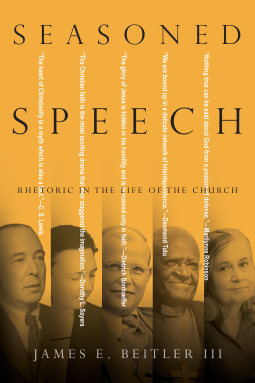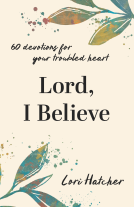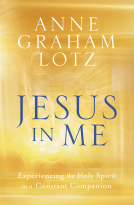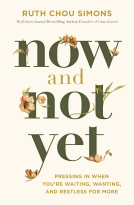
Seasoned Speech
Rhetoric in the Life of the Church
by James E. Beitler III
This title was previously available on NetGalley and is now archived.
Send NetGalley books directly to your Kindle or Kindle app
1
To read on a Kindle or Kindle app, please add kindle@netgalley.com as an approved email address to receive files in your Amazon account. Click here for step-by-step instructions.
2
Also find your Kindle email address within your Amazon account, and enter it here.
Pub Date May 07 2019 | Archive Date Jul 12 2019
InterVarsity Press | IVP Academic
Talking about this book? Use #SeasonedSpeech #NetGalley. More hashtag tips!
Description
The Christian faith depends to a great degree on persuasion. In one of his letters to early Christians, the apostle Paul wrote, "Let your speech always be gracious, seasoned with salt, so that you may know how you ought to answer everyone" (Col. 4:6). Yet rhetoric—the art of persuasion—has been largely ignored by most Christians.In this book, James Beitler seeks to renew interest in and hunger for an effective Christian rhetoric by closely considering the work of five beloved Christian communicators: C. S. Lewis, Dorothy L. Sayers, Dietrich Bonhoeffer, Desmond Tutu, and Marilynne Robinson. Moreover, he situates these reflections within the Christian liturgical seasons for the essential truths they convey.These writers collectively demonstrate that being a master of rhetoric is not antithetical to authentic Christian witness. Indeed, being a faithful disciple of Christ means practicing a rhetoric that beneficially and persuasively imparts the surprising truth of the gospel. It means having seasoned speech.
Advance Praise
"It is often very hard to see the obvious—that is, something as basic as the eloquence required for the proclamation of the gospel. But Beitler helps us recognize that the simple truth has an unmistakable eloquence, which is why it matters that we take lessons from the classical rhetorical tradition. Readers of this book will discover that the rhetorical task and questions of the truth of what we believe cannot be separated."
-Stanley Hauerwas, author of The Character of Virtue: Letters to a Godson
"In Seasoned Speech, James Beitler gives us a deep and subtle meditation on the many rhetorics of Christian witness—the enormously varied ways that the language of extraordinary and ordinary saints bear forth the gospel. To read this book is to be impressed by the author's scholarship but still more by the love with which he explores the relationship between our words and the Word."
-Alan Jacobs, distinguished professor of humanities, honors program, Baylor University
"This is an enlightening and fascinating exploration of five witnesses to the Christian faith and gospel. Even more, these diverse truth bearers—C. S. Lewis, Dorothy Sayers, Dietrich Bonhoeffer, Desmond Tutu, and Marilynne Robinson—function as lenses through which James Beitler III shows how the Word, liturgy, and life weave together rhetorically in faithful witness in differing contexts. Beitler's treatment is itself a keen example of seasoned speech, an embodied and intensely personal witness tinged with liturgical overtones. The effect of Beitler's evocative analysis is twofold: to encourage the reader to a self-examination of one's own Christian self, and to invite the reader to participate in the kind of embodied witness that Christian existence entails."
-André Resner, professor of homiletics and liturgics, Hood Theological Seminary
"In today's toxic communication climate, the apostle Paul's admonition that our speech should 'always be gracious' (Col 4:6) seems impossibly naive. One factor that fuels our skepticism is that we have no models of what gracious persuasion looks like in practical ways. How can we be both gracious and convicted in our communication? We are indebted to James Beitler for offering us vivid examples of Christian communicators—Lewis, Sayers, Bonhoeffer, Tutu, Robinson—who spoke timely truth marked by creativity, passion, and respect. Even if you are familiar with Beitler's subjects, his insights cast them in a new and invigorating light."
-Tim Muehlhoff, professor of communication, Biola University, author of Winsome Persuasion: Christian Influence in a Post-Christian World
"James E. Beitler's extraordinary and thoughtful book re-establishes the centrality of rhetorical theory for the practice of Christian witness. He examines the ethos of notable Christian rhetors, from C. S. Lewis to Marilynne Robinson, and organizes his discussion according to seasons in the liturgical calendar, demonstrating the connection between Christian witness and worship. These deeply theological reflections remind readers that rhetoric is not merely flowery language but is grounded in wisdom and truth. This is an important book for Christian scholars of rhetoric and lay Christians alike."
-Christine J. Gardner, associate professor and chair of the department of communication arts, Gordon College
"Christians not only have the responsibility to understand the gospel but also to share it with others. This task is inspired by the Spirit through human agency—lives lived, deeds done, and words spoken. All are important and complementary but each is a special charism. This book is about the charism of the spoken word and what we can learn from the masters of the craft in persuading others to follow Christ. Because the communicators discussed are all among my favorites, I am biased in commending it to potential readers. But I hope my few words will persuade you to take up and read and become better witnesses to the Word. This is a well-crafted and timely book."
-John de Gruchy, emeritus professor, University of Cape Town
"Beautifully written, this book explores the diverse rhetorical strategies of five influential Christians, arguing that their different communication styles celebrate and sustain the power of Pentecost. In the process of interpreting what makes their tongues burn with illuminating power, Beitler provides a lucid introduction to the history of rhetoric, calling Christians to participate in shared liturgical practices so that communal worship might ignite new ways to speak truth into culture."
-Crystal Downing, codirector of the Marion E. Wade Center, author of Changing Signs of Truth and Salvation from Cinema
Available Editions
| EDITION | Other Format |
| ISBN | 9780830852444 |
| PRICE | $27.99 (USD) |
| PAGES | 256 |
Links
Average rating from 6 members
Featured Reviews
 Educator 528984
Educator 528984
The book Seasoned Speech focuses on five significant authors - CS Lewis, Dorothy Sayers, Dietrich Bonhoeffer, Desmond Tutu, and Marilyn Robinson - and examines how they utilize rhetoric in their writings. The first basis for the book is how they all use the Aristotelian idea of ethos and then develop it into their own contexts. I agree with the book that rhetoric should be more closely examined in the book. I also appreciated the brief examinations of the themes of all five of these authors. However, I thought that the book's connections between the authors and times of the liturgical year were weaker. Of course, this could be because I am from a low-church tradition, where liturgical seasons are less important. Still, I hope this book will begin important conversations about rhetoric and how the Holy Spirit can work through our words for the Gospel.
 Michelle K, Reviewer
Michelle K, Reviewer
Seasoned Speech
Rhetoric in the Life of the Church
by James E. Beitler III
InterVarsity Press
IVP Academic
Christian , Religion & Spirituality
Pub Date 07 May 2019
I am reviewing a copy of Seasoned Speech through Intervarsity Press and Netgalley:
Seasoned Speech points out that the Christian Faith requires a degree of persuasion.
In one of Apostle Paul’s early letters to the church he wrote "Let your speech always be gracious, seasoned with salt, so that you may know how you ought to answer everyone" (Col. 4:6) Still Rhetoric and the art of persuasion has been largely ignored by most Christians.
In Seasoned Speech James Beitler seeks to renew an interest in Christian Rhetoric by looking closely at the works of five Christian Communicators which include C.S Lewis, Dorothy L Sayers, Dietrich Bonhoeffer, Desmond Tutu, as well as Marilyne Robinson.
This book reminds us that being an authentic Christian includes using Rhetoric.
I give Seasoned Speech five out of five stars!
Happy Reading!
 Conrade Y, Reviewer
Conrade Y, Reviewer
What has rhetoric got to do with Christianity? Is learning rhetoric a strategy of unholy manipulation? What can we learn from history with regard to Christian witness using rhetoric? According to author, James E Beitler III, we need more, not less "rhetorical reflection." In arguing for more of the training and theological reflection on rhetoric, he first debunks some myths surrounding the topic. For those who use the Bible to avoid the use of rhetoric, we learn that there is a place for right speech that uses the skills of persuasion. He states: "Rhetoric and truth are not opposites;
rather, presentations of the truth are always rhetorical." Going through the list of rhetorical experts is in itself a treat: Plato's and Socrates' works on rhetoric; Cicero's five canons of rhetoric; Peter Ramus's modification of Cicero's; Aristotle's three rhetorical appeals; and several contemporary authors such as Kevin Vanhoozer, David Cunningham, and André Resner Jr. Then there are several theologians who offer theological backing for the study and use of rhetoric as "some of the most persuasive forms of Christian witness."
Beitler presents this book about rhetoric in two ways. Firstly, he chooses a particular person in history to highlight a particular rhetorical framework. Secondly, he adopts the Church calendar as a theological counterpart for reflection. In doing so, he is able to hold both of these emphases together to present the art and theology of using rhetoric in the Church worship setting.
CS Lewis on "Preparing the Way" (Advent; Rhetoric of Euonia)
Dorothy L. Sayers on "Professing the Creeds" (Christmastide; Rhetoric of Enargeia)
Dietrich Bonhoeffer on "Preaching the Word" (Epiphany; Uniting Rhetoric of Ethos and Pathos)
Desmond Tutu on "Calling for Repentance" (Lent; Constitutive Rhetoric)
Marilynne Robinson on "Hosting the Guest" (Eastertide; Rhetoric of Ethos).
The author goes to CS Lewis's Church in Headington Quarry, Oxford to get a better sense of the worship environment of the famous philosopher and apologist. Personality wise, Lewis does not let his fame get to his head. His persuasiveness in his writings speak volumes about the way he uses rhetoric to drive home truth. While most of his writings tend to be dialectical, scholars have noticed that Lewis's approach is similar to "Quintilian's rhetorical counsel" as well as ethos. In Beitler's words, Lewis tends toward "goodwill toward one's audience" or a "rhetoric of goodwill." He also makes multiple connections between Lewis's rhetoric and the Advent season. For Dorothy L. Sayers, the challenge of her day was to deal with the barriers of Christian witness: Creeds. Despite the negative perceptions of dogmas and the mistakes of the past, she argues that the problem is not the creed per se, but how they had been communicated or non-communicated. He calls "silence, distortion, and cant" as failures of Christian witness. Sayers urges for the practice of both calling and creed through dogma. Performance is her key rhetoric. Using plays and storytelling, we can add vividness to the gospel witness. On Dietrich Bonhoeffer, the theme is learning Christian witness via life together. His rhetoric of "self-restraint" is an interesting term. He speaks as one with a two-pronged objective: Hide himself and reveal Christ. The season of Epiphany is a powerful way to illuminate Christ through ordinary times. Desmond Tutu's rhetoric is that of merging the worship of Christ and applying it to his struggle for social and political justice. Beitler admits that Tutu's rhetoric may be problematic at times when it becomes mixed with powers and political struggles. Yet, his version of "constitutive rhetoric" is immensely helpful to the "rhetoric of interdependence" and the freedom struggle. Marilynne Robinson's "Ethos of Eastertide" asks about how her bestselling book Gilead could teach us about the rhetoric of Christian witness. Her rhetoric of ethos, engages Christian orthodoxy with humanistic values. Chapter six brings all of these examples of various rhetorical styles together under the umbrella of "Heteroglossia of Pentecost." The language of rhetoric is a powerful way to deliver truth.
My Thoughts
The language in this book tends to more technical for laypersons. However, if you are familiar with the study of rhetoric, you would recognize many of the rhetorical terms and concepts used. part from the technical language used, there are at least three takeaways for readers here. First, the book is briefly biographical. It presents a snapshot of the life of the famous individual, albeit from a rhetorical perspective. Using a known historical character brings the art of rhetoric down to a personal level. These individuals are giants in their respective fields. One reason for their influence is their ability to communicate. CS Lewis is well known for his apologetics; Dorothy Sayers for her literary skills in drama and plays; Dietrich Bonhoeffer for his leadership in Church as well as theological depth; Desmond Tutu for social justice; Marilynne Robinson for literature. More importantly, Beitler helps us see that rhetoric is not something to avoid but to be embraced. For it is a powerful way to witness God's truth. As a preacher, this study and application of rhetorics challenges me to expand my repertoire of rhetoric.
Second, there is a powerful theological component in the description of the rhetoric of these individuals. Beitler puts it as witness, and shows us how the conviction of Scripture underlines the foundations of each individual's life work. Beitler assists us by explicitly linking the seasons of the Church calendar with a theological angle. He also shows us the contexts of each individual's theological development; how their background and upbringing affect their witness. It is a subtle challenge to each of us not to belittle the opportunities that we have. If these people could create waves in their respective contexts, we too could learn to embrace opportunities presented to us. Through the book, Beitler gives us a gamut of the different ways theology informs rhetoric.
Third, worship. The last chapter is an important one. Beitler ties all the individual rhetorical styles together under the umbrella of Church and the working of the Holy Spirit. We are encouraged to pursue any of these styles, and to develop our own. The liturgical component helps us bring together the diversity of theology, rhetoric, and communication styles under the umbrella of worship. This is in a way telling us that we too ought to do the same with our own lives.
James E. Beitler III is associate professor of English at Wheaton College.
Rating: 4 stars of 5.
conrade
This book has been provided courtesy of Inter-Varsity Press and NetGalley without requiring a positive review. All opinions offered above are mine unless otherwise stated or implied.
Readers who liked this book also liked:
Harold Earls, IV; Rachel Earls
Biographies & Memoirs, Parenting, Families, Relationships


















